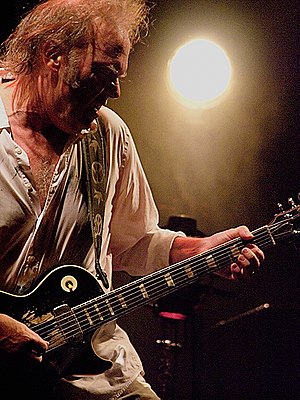 The ‘60s have always been a fascinating era in history for me. It was a time of social and political upheaval, of discovery, and of pushing the envelope of our collective thinking. A man on the moon within a decade. Civil rights. War protests. Woodstock. Philosophically, this era has always made sense to me – for countless reasons. Music was inherently tied in to “the message”. Music became a powerful connector of people and of social causes.
The ‘60s have always been a fascinating era in history for me. It was a time of social and political upheaval, of discovery, and of pushing the envelope of our collective thinking. A man on the moon within a decade. Civil rights. War protests. Woodstock. Philosophically, this era has always made sense to me – for countless reasons. Music was inherently tied in to “the message”. Music became a powerful connector of people and of social causes.
One of the icons of the era would have to be Neil Young. I have always had an immense appreciation for Young. I can thank my father for first exposing me to Young’s musical brilliance. I came to Young’s music primarily through albums like “Rust Never Sleeps” (1979). It was the raw guitar edge that was so stunning to me. The sounds that he could pull out of “Old Black” defined the word “grunge” before that phrase ever became popular.
But Young’s music (and guitar playing) is just a part of this equation.
As a lyricist and songwriter, Young will most certainly be considered one of the greats of our era. Over the past 4 decades, he has continued to meld strong social lyrics with a fearlessness to say what needs to be said – about love, and about war. And he has been his own man in the process, marching to the beat of his own drum.
It may have all started for me with “Rust Never Sleeps”, but my interest in Young’s work quickly evolved. Before long, I had discovered “Harvest” (1972) – with “Heart Of Gold”, “A Man Needs A Maid”, and “The Needle And The Damage Done”. I discovered “Cortez The Killer” (1975). It wasn’t just the grunge guitar. I found myself enjoying his acoustic work far more than anything else. Young’s lyrics have always hit home for me, speaking to me in a way that few other songwriters do.
Interviews with Neil Young are typically full of great quotes, and the video clip above is no different:
“A more direct approach might get more attention to the issue”
“Our job is to just make people feel.”
“If you’re going to take a stand for something then you have to be willing to take the knocks for it”
“Hate is not a catalyst for change”
There is a certain simplicity to his approach to the world around him. His words reflect not only his outspoken nature but also his ability to say what needs to be said regardless of the public perception. I have always admired that straightforward and no nonsense approach.
His music has changed and he has adopted different genres and styles over the years, even though the critics have wondered why he would ever do so. Why mess with success? But he has done it because it is the essence of Neil Young. He is, without question, his own man.
In this interview with Charlie Rose, he discusses his thoughts on life since he suffered a brain aneurysm in 1995.
I had the great pleasure of seeing Young perform, solo acoustic, at the Bass Concert Hall in Austin. Words will never be able to describe the experience. Seeing him perform on TV at the Opening Ceremonies for the 2010 Winter Olympics in Vancouver brought this all back to the forefront of my mind. Having Neil Young – one of the greatest Canadian musicians ever – at the Olympics was an obvious choice.
Young is a tremendous performer, and an amazing man who has faced plenty of adversity. But over the years, I have come to truly appreciate his words and his wisdom. There is a deep sincerity and purity in his message – and this is what has meant the most to me.
Photo credits: Wikipedia

 "Running Injuries: Etiology And Recovery- Based Treatment" (co-author Bridget Clark, PT) appears in the third edition and fourth editions of "Clinical Orthopaedic Rehabilitation: A Team Approach" by Charles Giangarra, MD and Robert C. Manske, PT.
"Running Injuries: Etiology And Recovery- Based Treatment" (co-author Bridget Clark, PT) appears in the third edition and fourth editions of "Clinical Orthopaedic Rehabilitation: A Team Approach" by Charles Giangarra, MD and Robert C. Manske, PT.
 Allan Besselink, PT, DPT, Ph.D., Dip.MDT has a unique voice in the world of sports, education, and health care. Read more about Allan here.
Allan Besselink, PT, DPT, Ph.D., Dip.MDT has a unique voice in the world of sports, education, and health care. Read more about Allan here.
 Top 5 finalist in three categories: "Best Overall Blog", "Best PT Blog" and "Best Advocacy Blog".
Top 5 finalist in three categories: "Best Overall Blog", "Best PT Blog" and "Best Advocacy Blog".